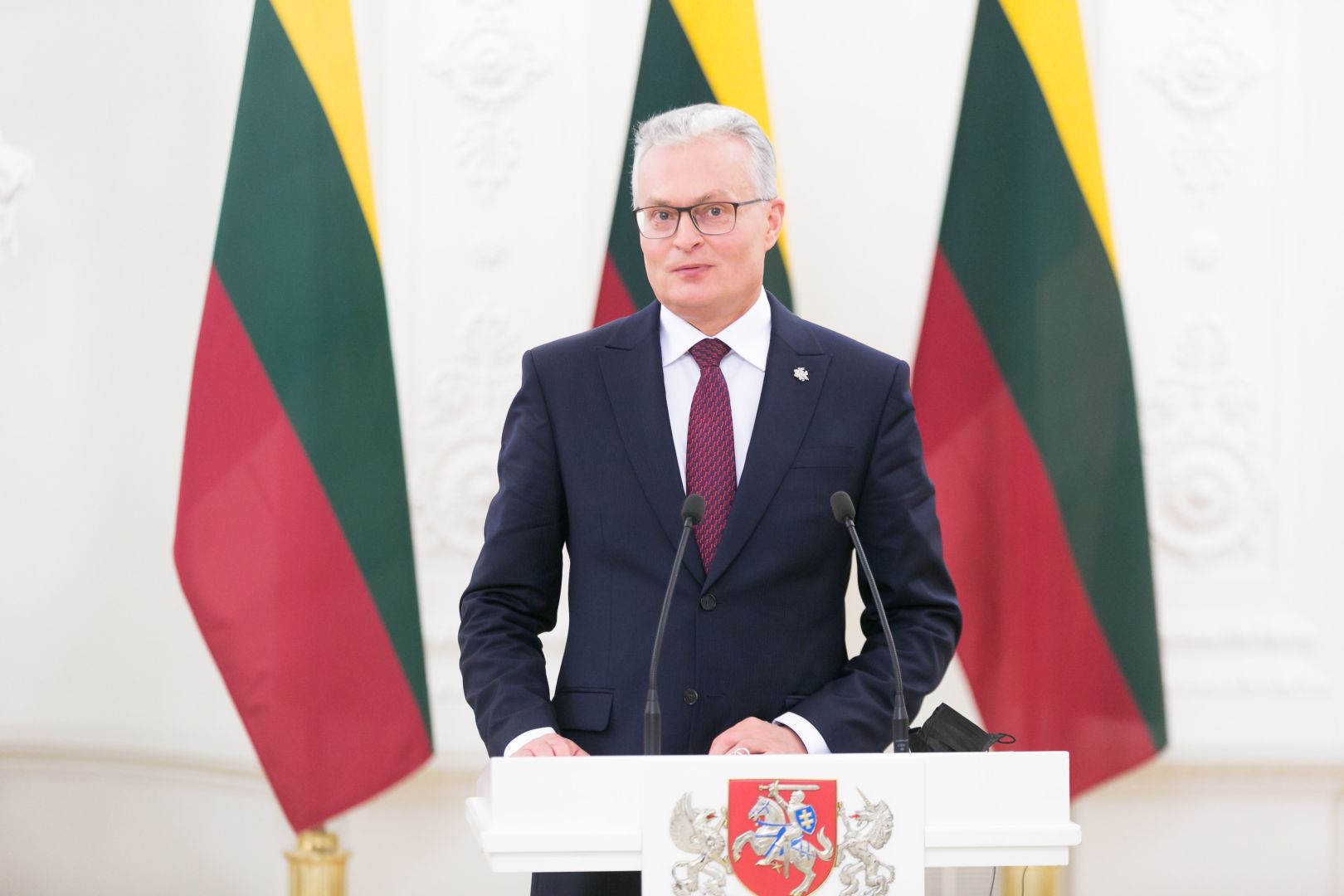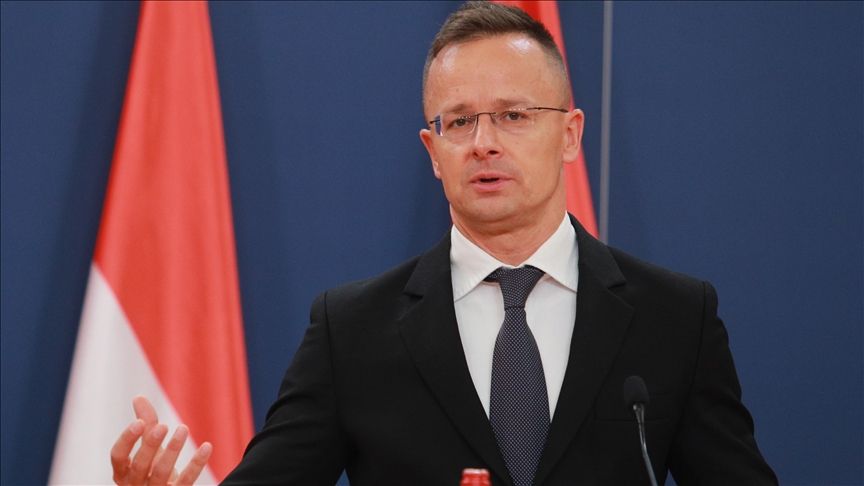|
|
TODAY.AZ / Business
Azerbaijan as Europe's main energy drive amidst political tantrums [ANALYSIS]
18 January 2024 [08:30] - TODAY.AZ

The 2022 Russian invasion of Ukraine sent shockwaves through European gas markets, prompting a reevaluation of energy security strategies. The conflict disrupted gas flows and heightened concerns about reliance on Russian supplies. Thus, as Europe seeks alternatives to balance its energy security, Azerbaijan emerges as a significant player, making strides in the European market, even despite some influences from the EU and the West on the Azerbaijan-Armenia peace agreement process.
US Deputy Assistant Secretary for Energy Diplomacy, Laura Lochman, also underscored the significance of the SGC in addressing Europe's current energy challenge. She highlighted the success of the SGC and envisions its expansion as a crucial element in securing Europe's energy future.
“The European continent is going through an energy challenge right now, which was provoked by Russia’s illegal and unjustified war in Ukraine. Thus, the European countries are trying very hard to significantly reduce or eliminate their reliance on Russian supplies as those are clearly not reliable sources. We all need to diversify our sources of energy as well. The Southern Gas Corridor has been playing a role historically, it was a huge project to bring together the governments and the private sector to get the SGC in place and now we see the benefits of it, and the success of that and hope for its expansion in the future as well,” she added.

As US Deputy assistant mentioned in response to the energy crisis, Azerbaijan is actively engaging in partnerships with European countries. As an example, Lithuania, recognizing Azerbaijan's energy potential, views the nation as a crucial partner for mutually beneficial opportunities.
“Azerbaijan is an important partner of Lithuania and we are interested in searching for mutually beneficial opportunities. We see Azerbaijan as a growing economic power with a huge energy potential and aspirations to diversify,” said President of Lithuania Gitanas Naus?da as he addressed the opening ceremony of the Azerbaijan-Lithuania business forum in Vilnius.

The recent agreements between Azerbaijan and Serbia highlight the growing importance of energy cooperation, emphasizing the supply of Azerbaijani gas to diversify the European gas market. “Memorandum of Understanding between the Ministry of Energy of the Republic of Azerbaijan and the Ministry of Mining and Energy of the Republic of Serbia on promoting cooperation between SOCAR and Srbijagas, as well as agreement on gas sales between SOCAR and Srbijagas were signed. The Minister of Mining and Energy of the Republic of Serbia Dubravka Djedovi? Handanovi? said:
“Today, Serbia and Azerbaijan have opened a new chapter in their economic and bilateral cooperation by signing a contract on the volumes of gas that Azerbaijan will supply to Serbia. After the supply of Azerbaijani gas to Serbia via the Bulgaria-Serbia Interconnector, which is expected to be commissioned in the near future, we are going to achieve our strategic goal of diversifying our sources of supply for this energy source and further bolstering our role as a transit country for gas distribution to Central Europe. The signed contract outlines the delivery of 400 million cubic meters of gas in the next year, and we expect these volumes to increase further in the coming years.”
Touching on Azerbaijan's role in Central Europe's gas supply, Hungary has been in talks with Azerbaijan for purchasing gas since early last year. In a meeting with Azerbaijani Economy Minister Mikayil Jabbarov in January 2023, Minister Szijjártó reaffirmed Budapest’s plans to count on Azerbaijani supplies as soon as possible, however, added that substantial infrastructural developments in Southeastern and Central Europe should be in place to make it possible.
“Increased natural gas production in Azerbaijan could play an important role in the energy security of Hungary and Central Europe, but this requires the development of infrastructure in the region, which in turn requires EU support,” Hungarian Foreign Minister Péter Szijjártó said.

Azerbaijan's collaboration with Spain in renewable energy also presents promising prospects. Memoranda of Understanding between the EU and Azerbaijan indicate the potential for Spanish companies to contribute to renewable energy initiatives in Azerbaijan. Azerbaijan's Minister of Foreign Affairs emphasizes the country's potential in supplying green electricity to the EU, fostering a new dimension of cooperation.
"The pivotal Memorandum of Understanding in the field of energy signed between the EU and Azerbaijan brings excellent prospects of cooperation for our countries, not only because the Spanish Enagas company has a significant participation in the Trans-Adriatic Pipeline (TAP), a segment of the Southern Gas Corridor (SGC), but also because this agreement contemplates the development of renewable energy in Azerbaijan," the ministry said.
According to the ministry, as far as the energy sector is concerned, the prospects are especially promising for the Spanish Tecnicas Reunidas company, which is already well established in Azerbaijan through its partnership with the State Oil Company of Azerbaijan (SOCAR) in the modernization of the Heydar Aliyev Oil Refinery and is looking forward to being involved in the next phases of this project.
In terms of energy, key component to Italy’s and Azerbaijan’s relationship is the Trans Adriatic Pipeline (TAP). The pipeline is a key transport route that transports gas from Azerbaijan to Apulia, Italy, via a 546-mile link and has a current capacity of 1.2 bcm a year.
The two countries made the announcement that they will begin increasing the volume of shipments to 20 bcm by the end of 2027. The TAP and new energy deals have gained increasing importance as Italy strives to reduce its dependence on Russian energy resources. Prior to the war on Ukraine, Italy sourced 40 percent of its natural gas from Russia. Last year, Italy was able to bring that down to 16 percent; however, Urso stated that the country plans to completely abolish reliance on Russian gas by the end of 2023. Especially given Italy’s previous reliance on Russian gas, increasing the TAP capacity and diversifying energy resources with critical partners like Azerbaijan have become a significant assurance in Italy’s energy security.
In conclusion, the European Union and Azerbaijan jointly show strong willingness to deepen cooperation in the connectivity sector. Against the backdrop of disruptions in transportation routes connecting Asia and Europe through the territory of Russia, the key role of the Trans-Caspian International Transportation Route (TITR), or Middle Corridor, is increasing significantly. And the significance of the opportunities that stem from the new deal have substantially grown specially since the start of the Russia-Ukraine war. So the market access of Azerbaijan’s energy in Europe are expected to increase in the coming period.
URL: http://www.today.az/news/business/243755.html
 Print version
Print version
Connect with us. Get latest news and updates.
See Also
- 23 February 2026 [12:42]
Wind power output surges in Azerbaijan, while thermal plants still dominate - 23 February 2026 [08:30]
Azerbaijan economy set for modest growth despite weak oil prices - 22 February 2026 [12:11]
Weekly review: Crude oil prices see mixed trends - 22 February 2026 [08:30]
Azerbaijan aligns with China’s Belt and Road strategy through Middle Corridor - 21 February 2026 [16:50]
Georgia sets symbolic transit fee for Azerbaijani oil shipments to Armenia - 21 February 2026 [13:22]
New Sumqay?t–Lachin bus route launches to serve citizens returning to liberated areas - 21 February 2026 [10:00]
Azerbaijan reduces motor gasoline production in January - 20 February 2026 [19:00]
Gran Tierra to begin Azerbaijan onshore exploration under new SOCAR agreement - 20 February 2026 [18:36]
SOCAR launches first fully electric vehicle charging station in South Caucasus - 19 February 2026 [13:04]
Canadian energy firm to launch oil exploration in northern Azerbaijan
Most Popular
 TURKPA and OSCE PA discuss expanded cooperation at 25th Winter Session in Vienna
TURKPA and OSCE PA discuss expanded cooperation at 25th Winter Session in Vienna
 Guarantees of peace from Armenia: questions remain
Guarantees of peace from Armenia: questions remain
 Azerbaijan aligns with China’s Belt and Road strategy through Middle Corridor
Azerbaijan aligns with China’s Belt and Road strategy through Middle Corridor
 Trump weighs military strike on Iran as Pentagon presents options
Trump weighs military strike on Iran as Pentagon presents options
 Eight Hezbollah members killed in Israeli airstrikes in Eastern Lebanon
Eight Hezbollah members killed in Israeli airstrikes in Eastern Lebanon
 Slovakia threatens to halt emergency electricity aid to Ukraine over oil transit dispute
Slovakia threatens to halt emergency electricity aid to Ukraine over oil transit dispute
 Greece working with another 4 European countries to set up migrant deportation hubs outside EU
Greece working with another 4 European countries to set up migrant deportation hubs outside EU
